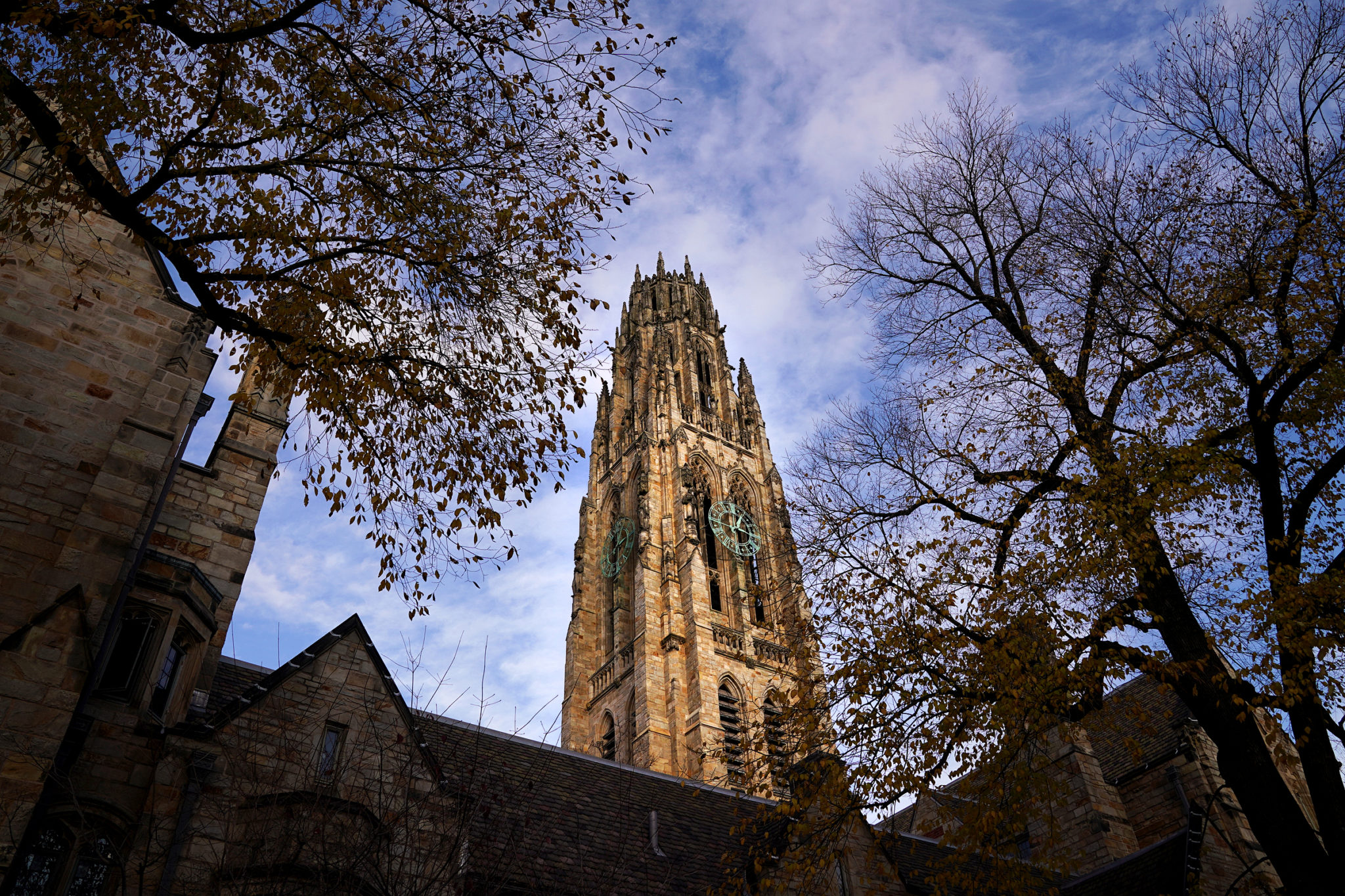Four Yale Students awarded Schwarzman scholarship
Two seniors and two alumni will study at Tsinghua University in a program designed to educate future leaders on Chinese history, politics and culture.

Tim Tai, Staff Photographer
Two Yale seniors and two recent alumni were selected to be Schwarzman scholars and will spend a year in Beijing, China studying at Tsinghua University.
The students — Jasper Boers ’22, Sharmaine Koh Mingli ’22, Liam Arnade-Colwill ’19 and William Ge ’17 — will earn a master’s degree in global affairs from Tsinghua University through the program, which was initially launched in 2016. This cohort of Schwarzman scholars hails from 33 different countries. The program pushes for collaboration and using one’s unique perspective to solve practical problems.
“The program is very explicit in presenting itself as an opportunity for people around the world who want to make a change and who aspire to be leaders in whatever fields they are to understand China,” Koh Mingli, a senior majoring in history, said. “It’s very difficult to make an impact on the world without understanding the role that China is going to play in future. I think it really aims to be that bridge between China and the rest of the world.”
The degree’s academic curriculum is designed around three multidisciplinary pillars: leadership, China and global affairs. Students are expected to take a Mandarin course and a course that details the past 40 years of China’s political, economic and social history.
Additionally, Schwarzman scholars take numerous electives oriented towards China’s internal politics, foreign policy and history. The academic year culminates in a capstone project where students work individually or together in teams of 3-5 and complete a global interest project.
“I thought the capstone project was just really interesting,” Koh Mingli said. “You are thinking collaboratively with other leaders from other parts of the world about a specific issue and then you have different perspectives that you are bringing to the same problem.”
Outside of the classroom, students are encouraged to pursue internships with businesses, schools, nongovernmental organizations and international organizations in the Beijing area.
Each scholar is also assigned a personal mentor from their preferred occupational sector. Primarily based in Beijing, mentors offer students professional insight into working in China and into their futures beyond academia.
“Oftentimes policymakers and people who work in think tanks write very abstractly about the countries they study and the issues that they study,” Boers said. “A lot of the time they read fact pieces and news from the country, but they never actually visit.”
For Boers, physically attending school in China is crucial for his potential future in crafting foreign policy for the United States government.
“Knowing that I want to do something related to national security, going to China and studying there is kind of the first step towards learning more about China in a sincere way and in a way that will have a lot of impact,” Boers said.
While not all scholars are eyeing governmental work post-graduation, many still recognize the importance of learning about Chinese history and culture from Chinese professors.
“You can’t really beat the experience of being in the country itself — learning from leaders in China as to how exactly they are thinking about the future of their country and how it will impact the rest of the region,” Koh Mingli said.
Nevertheless, the program has been criticized in the past, both externally and internally. The program is named after CEO of The Blackstone Group Stephen Schwarzman ’69, the program’s primary benefactor and a major Yale donor.
Last February, 161 current and former Schwarzman scholars signed a letter to Schwarzman demanding that he cease donating money to politicians who opposed the certification of President Joseph Biden’s electoral college victory in the 2020 presidential election. The letter’s signatories argued that Schwarzman was betraying the values of his namesake program.
Furthermore, the program was criticized in 2019 after Tang Xiao’ou, the founder of SenseTime, was invited to speak at the program’s fall commencement ceremony. SenseTime is a company that offers facial recognition artificial intelligence technology that has been used by the Chinese government to identify and target ethnic minorities in the Xinjiang region. Even after student complaints and protests, Xiao’ou still spoke at the ceremony.
Still, the Schwarzman Scholars program is one of the most competitive graduate fellowships in the world and is considered to be the “Rhodes scholarship of the East.”
“The application process is fairly rigorous,” Director of the Office of Fellowship Programs Rebekah Westphal said. “There are a few pieces of writing on leadership and a statement of purpose, a short video introduction, recommendations and an interview if selected as a finalist.”
For the interview, applicants were asked questions by a panel of leaders from a multitude of sectors and industries.
This class of Schwarzman scholars will begin their academic term this coming August.







